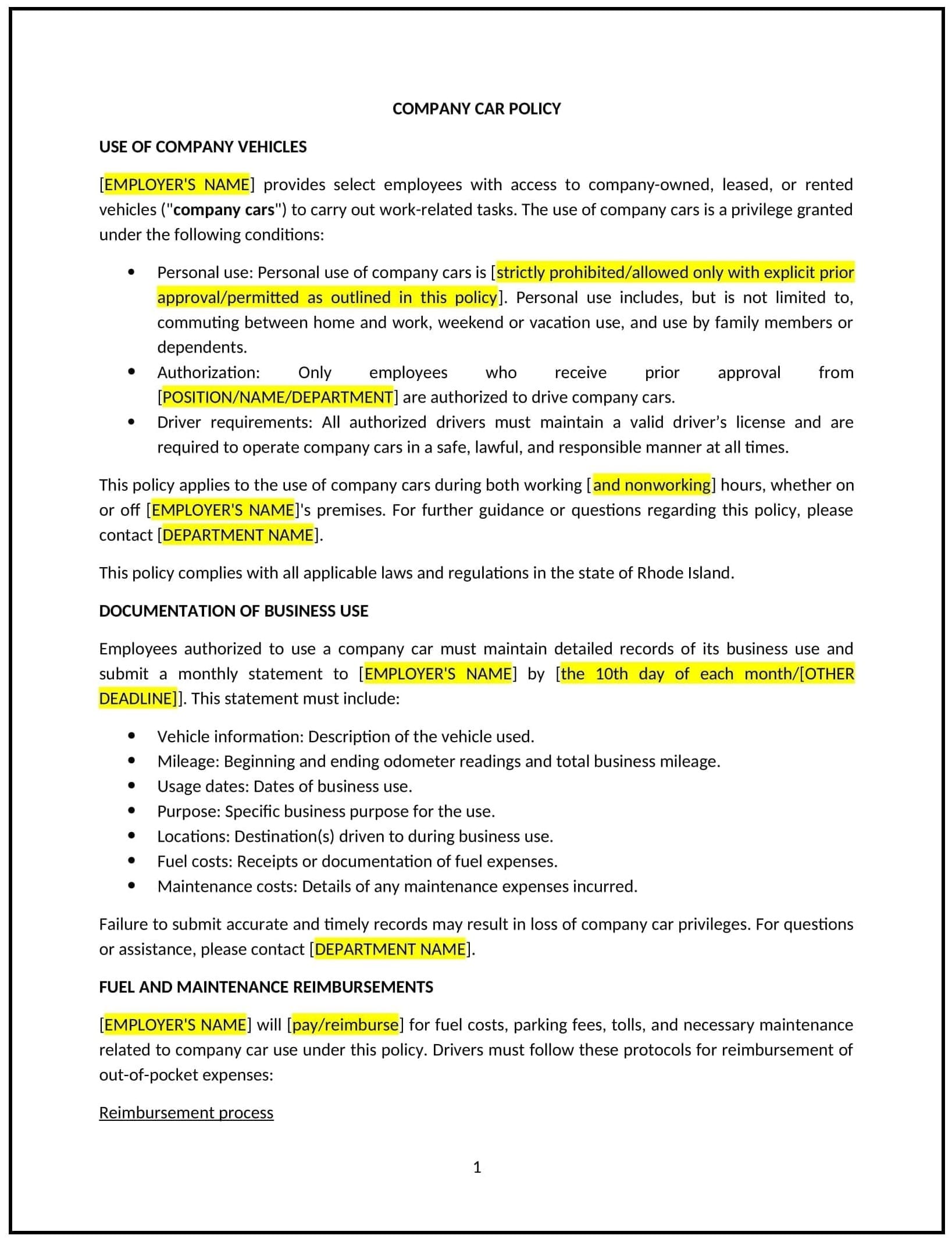Got contracts to review? While you're here for policies, let Cobrief make contract review effortless—start your free review now.

Customize this template for free
Company car policy (Rhode Island)
This company car policy is designed to help Rhode Island businesses establish guidelines for employees using company-owned vehicles. It outlines procedures for vehicle use, maintenance responsibilities, and reimbursement for business-related travel.
By adopting this policy, businesses can promote safe driving practices, reduce liability risks, and ensure efficient use of company resources.
How to use this company car policy (Rhode Island)
- Define authorized drivers: Specify which employees are eligible to use company cars and the approval process.
- Set usage guidelines: Outline acceptable uses for company vehicles, such as business travel or client meetings.
- Address maintenance responsibilities: Clarify who is responsible for routine maintenance, repairs, and cleaning.
- Establish reimbursement procedures: Provide guidelines for reimbursing employees for business-related travel expenses.
- Include safety requirements: Require employees to follow traffic laws and report accidents immediately.
- Train employees: Educate authorized drivers on company car policies and safe driving practices.
- Review and update: Assess the policy annually to ensure it aligns with evolving business needs and legal standards.
Benefits of using this company car policy (Rhode Island)
This policy offers several advantages for Rhode Island businesses:
- Promotes safe driving: Encourages employees to follow traffic laws and prioritize safety.
- Reduces liability risks: Provides clear guidelines to minimize accidents and misuse of company vehicles.
- Ensures efficient resource use: Helps businesses manage vehicle maintenance and operational costs.
- Supports transparency: Establishes clear expectations for employees using company cars.
- Aligns with best practices: Offers a structured approach to managing company vehicle use.
Tips for using this company car policy (Rhode Island)
- Communicate the policy: Share the policy with employees and include it in the employee handbook.
- Provide training: Educate authorized drivers on safe driving practices and company car guidelines.
- Monitor usage: Regularly review vehicle logs to ensure compliance with the policy.
- Address issues promptly: Take corrective action if employees misuse company vehicles or violate safety guidelines.
- Update regularly: Assess the policy annually to ensure it aligns with evolving business needs and legal standards.